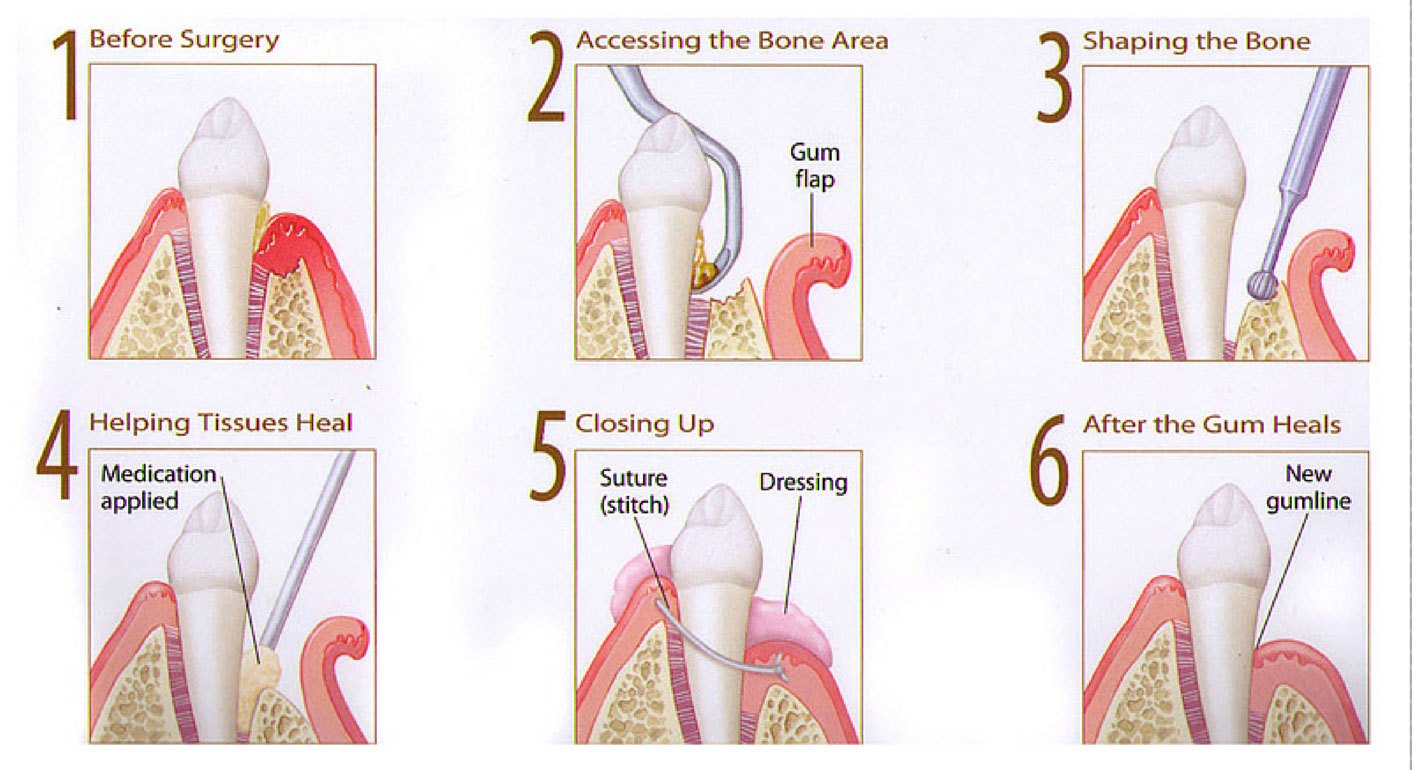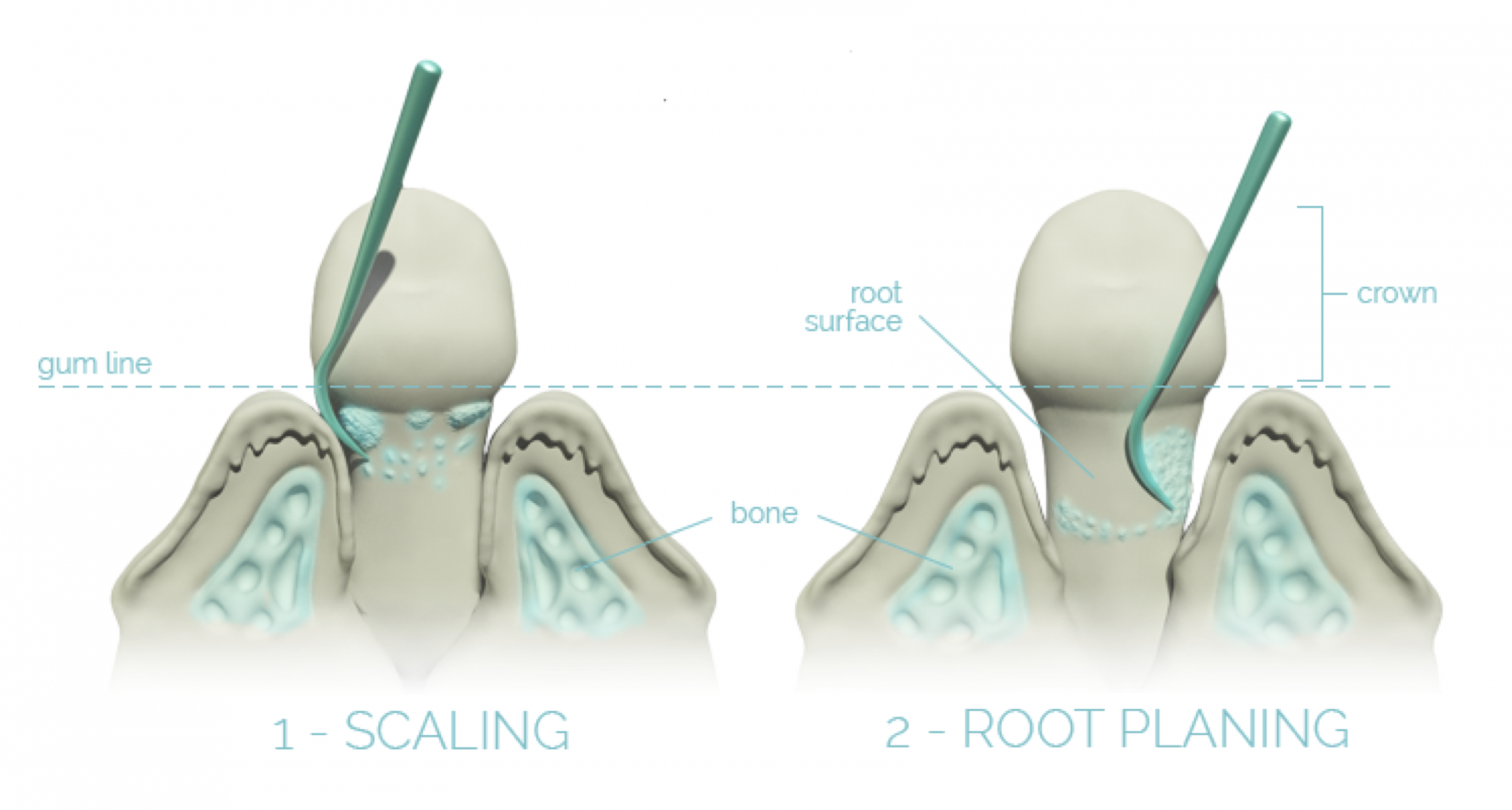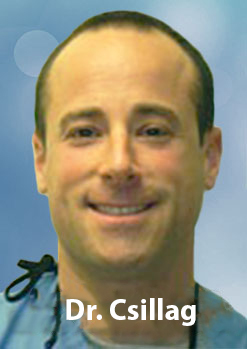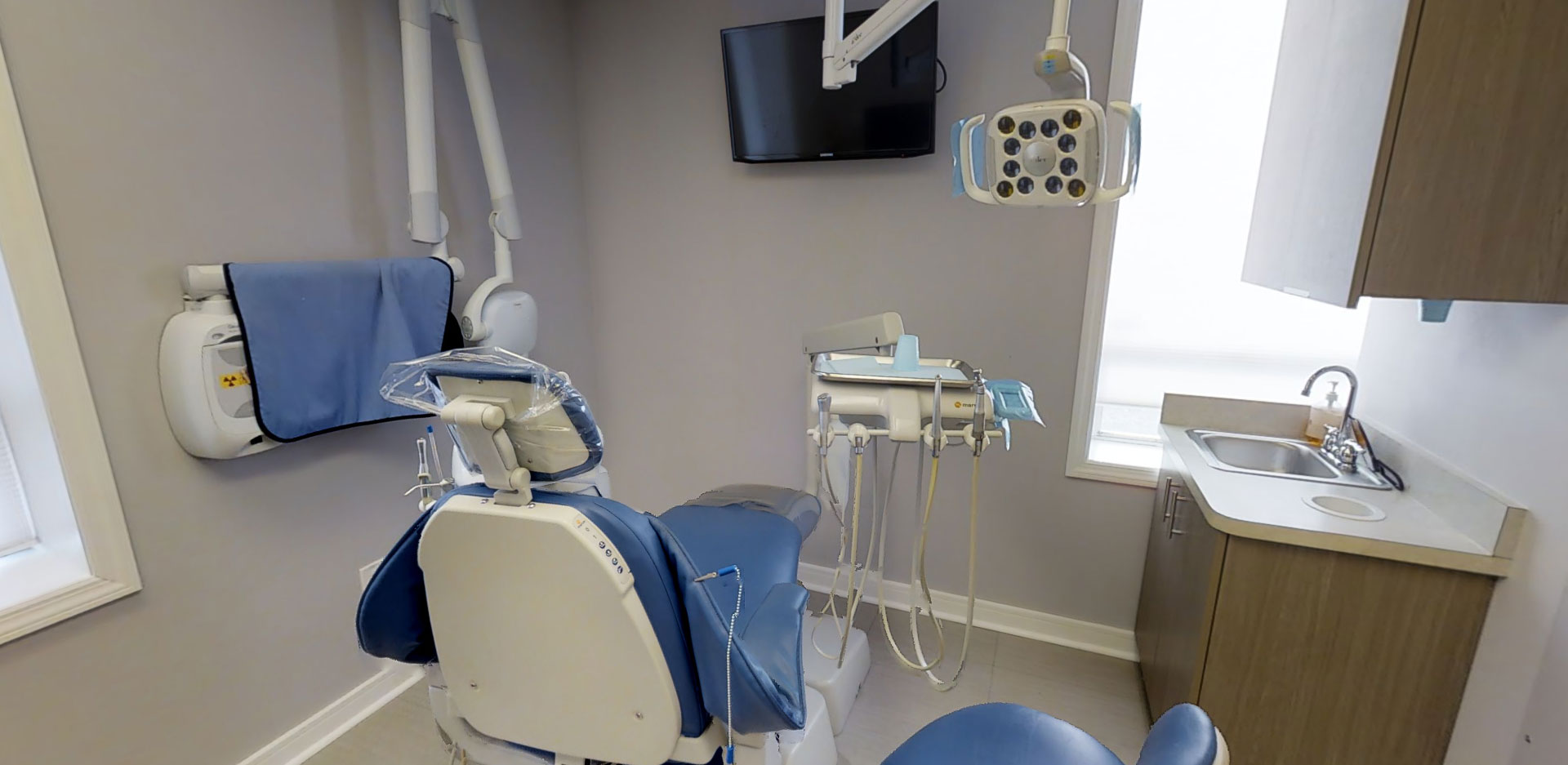
Gum disease is an extremely common medical condition, and a mild form of periodontal disease. It can be treated painlessly and without surgery, but only if it’s diagnosed early. Call Dr Csillag for a free consultation. He has the knowledge and equipment necessary to catch gum disease in its early stages, and treat it quickly and effectively before the condition gets out of hand.
What Is Gum Disease?
Over half of adults in the US suffer from periodontal disease in some degree. The earliest stage is gum disease, more commonly known as gingivitis. This typically presents itself as mild irritation and inflammation of the gums. It can also cause some minor bleeding around the roots of the teeth, which typically occurs during brushing.
Gum disease is initially caused by an accumulation of plaque around the teeth. Plaque, as you probably know already, is caused by particles and bacteria, in combination with the natural mucus present in a healthy mouth. It usually builds up around the base of the teeth and the gum line, and this buildup can take place at any given time. You can get rid of it through regular brushing and flossing.
When plaque isn’t removed effectively, it develops into tartar. This substance can’t be removed through normal brushing, and leads to holes and gaps forming around the teeth. These holes and gaps are called pockets.
These “pockets” create the ideal environment for bacteria in the mouth to accumulate, which will then lead to infection. This infection is gum disease, which will ultimately evolve into periodontitis.
In a lot of cases, gum disease goes by ignored, as the symptoms seem so negligible to the patient. For some people, the symptoms aren’t even present all the time. Many people with this condition don’t realize they have it, or if they do, aren’t aware that it can develop into something far more serious. A surprising amount of patients allow their gum disease to go untreated, when it’s easily prevented and dealt with.
Why Is It Important To Treat Gum Disease?
If you let gum disease go unchecked for long enough, it will develop into periodontitis. This is a much more damaging form of periodontal disease. Periodontitis causes more intense pain in the gums, more profuse bleeding, and ultimately, the loosening or even loss of teeth. It can also present itself as sensitivity, pain in the teeth while chewing, bad breath, reddened gums, and gum recession. As your body tries to fight off the infection in the gums, it can wear away the connective tissue that holds teeth in place, and loosen them.
More severe periodontal disease can’t be treated with the same, non-surgical methods as basic gum disease. In some cases, the damage can only be remedied using surgery, which of course can be much more costly. Sometimes, the damage present in the gums, teeth and bone is so severe that it can’t be remedied at all. If it’s left untreated for too long, bone loss can occur, along with the potential for having to have teeth removed. Any loosened teeth will ultimately fall out by themselves. A loss of teeth can take a major toll on your quality of life; affecting your speech, digestion, and appearance.
The Gum Disease Treatment Process
In most cases, gum disease treatment in Hawthorne, NJ, is deep cleaning. This is a non-surgical and painless procedure. First of all, the condition needs to be diagnosed, and the severity of it assessed. During this evaluation phase, Dr Csillag will examine your teeth and gums, and ask you a few simple questions about your lifestyle. There are various lifestyle factors that can affect the risk and severity of gum disease, for example whether or not you smoke.
There are six measurements taken from each tooth in the mouth, usually in millimeters, judging the size of the aforementioned pockets. The depth of these gaps and holes in the teeth usually correlate with the severity of the periodontal disease. The measurement is painless, and performed using a tiny ruler that is inserted into the gap. The required extent of the deep cleaning treatment is determined by how far along the case of gum disease is. The treatment itself is tailored to you and your unique needs, as well as the conditions in your mouth.
The two non-surgical procedures commonly used are called scaling and root-planing. Scaling simply involves stripping tartar from the teeth, above and below the gum line. This relieves most of the irritation commonly caused by gum disease. Root-planing is used to smooth out the rough areas of the teeth. Rough patches on the surface of the teeth gives bacteria places to gather and multiply. Smoothing them out prevents further gum disease in the future.

Recovery Time
Like any dental cleaning procedure, scaling and root-planing is fast and painless. There’s no recovery time to speak of, and you can go home right after the procedure is finished. If you ignore the symptoms, and put off getting them treated for too long, you’re sure to experience more pain, higher bills for treatment, and a longer period of recovery.
Following a deep cleaning treatment, it’s recommended that you alternate appointments with your periodontist and your regular dentist to keep tabs on the condition. It’s also very important that you apply daily at-home hygiene techniques. Keep brushing your teeth twice a day, and floss regularly. Fighting gum disease is an ongoing process, as there will always be bacteria lingering in your mouth, which has the potential to lead to infection.
Get a Free Consultation Today
Dr Csillag provides free consultations for gum disease treatment in Hawthorne, NJ. Early detection, not to mention a comprehensive treatment plan, are essential to staving off more serious forms of periodontal disease. Most insurance programs are accepted, and Dr Csillag offers financing options to any patients who qualify. Furthermore, the office takes care of all your insurance paperwork, making sure your treatment is as easy and stress-free as possible. Don’t hesitate to call Dr Csillag today, and find out if a non-surgical treatment is right for you.



 (973) 567-7773
(973) 567-7773
